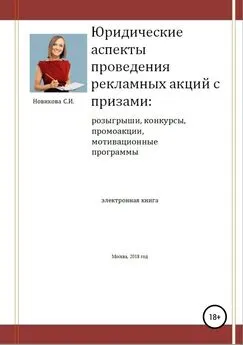Денис Шевчук - Внешнеторговый международный контракт: типовой образец, пример контракта, экономические и юридические аспекты
- Название:Внешнеторговый международный контракт: типовой образец, пример контракта, экономические и юридические аспекты
- Автор:
- Жанр:
- Издательство:неизвестно
- Год:неизвестен
- ISBN:нет данных
- Рейтинг:
- Избранное:Добавить в избранное
-
Отзывы:
-
Ваша оценка:
Денис Шевчук - Внешнеторговый международный контракт: типовой образец, пример контракта, экономические и юридические аспекты краткое содержание
Книга "Внешнеторговый международный контракт" основана на ускоренных методах изучения иностранных языков.
Внешнеторговый международный контракт: типовой образец, пример контракта, экономические и юридические аспекты - читать онлайн бесплатно ознакомительный отрывок
Интервал:
Закладка:
The 1980 Vienna Convention does not apply to goods bought for personal, family, or household use if the seller – at any time before or at the conclusion of the contract – either knew or ought to have known that the goods were bought for such use. Nor does it apply to sales by auction, on execution or otherwise by the authority of law according to article 2.
Венская конвенция 1980 года не применяется в отношении товаров для личного, семейного или домашнего использования, за исключением случаев, когда продавец в любое время до или в момент заключения договора не знал и не должен был знать, что товары приобретаются для такого использования. Не применяется она и к продажам с аукциона в порядке исполнительного производства или иным образом в силу закона ( ст.2 Конвенции ).
The 1980 Vienna Convention is limited to formation of a contract of sale and the rights and obligations of seller and buyer arising from such a contract. In particular, this Convention is not concerned with the validity of such a contract, its provisions or usage, or with the effect the contract may have on goods sold. Moreover, under article 5 of this Convention, the seller is not liable for death or personal injury caused by the goods to any person.
Венская конвенция 1980 года регулирует только заключение договора и те права и обязанности продавца и покупателя, которые возникают из такого договора. В частности, по общему правилу она не касается действительности самого договора или каких-либо из его положений, либо любого обычая или последствий, которые может иметь договор в отношении права собственности на проданный товар ( ст.4 Конвенции ) . Более того, не применяется она и в отношении ответственности продавца за товар, т. е. за причиненные товаром повреждения здоровья или смерть какого-либо лица ( ст.5 Конвенции ).
It should also be noted that the 1980 Vienna Convention does not set any rules to govern the choice of applicable law.
Следует также отметить, что Венская конвенция 1980 года не регулирует выбор применимого права .
Check Questions
Is the 1980 Vienna Convention imperative or dispositive in character?
The 1980 Vienna Convention. What is the sphere of its application?
How many countries have signed the 1980 Vienna Convention?
Does this Convention set any rules to govern the choice of law?
WORLD-WIDE CONTRACTUAL STANDARDS
INCOTERMS,THE ICC OFFICIAL RULES FOR THE INTERPRETATION OF TRADE TERMS
TERMS THE WORLD TRADES BY
In every international trade transaction certain questions must be answered:
Who will arrange and pay for the transfer of goods from the seller’s works/ factory/warehouse to the buyer’s premises?
Who will bear the risk if these operations cannot be carried out?Who will bear the risk of loss of or damage to the goods in transit?
The various national laws, of course, contain various solutions for each of these questions. However, one party to an international sales contract may hesitate to subject itself to the national laws and procedures of the other. This is why international commercial terms, or standardised trade terms, have been developed, notably by the International Chamber of Commerce (ICC) – the Incoterms.
With Incoterms, the ICC set out to overcome the problems of conflicting national laws and interpretations by establishing a standard set of trade terms and definitions that offer neutral rules and practices. They have been decided upon after thorough discussions between experts representing businessmen from all over the world.
The Incoterms were first published in 1936, since then they have been regularly updated to keep pace with the development of international trade. Amendments and additions were made in 1953, 1967, 1976, 1980, 1990 and presently in 2000.
In view of the changes made to Incoterms from time to time, it is important to ensure that where the parties intend to incorporate Incoterms into a contract of sale, an express reference be made to the current version of Incoterms. The absence of such reference may result in disputes as to whether the parties intended to incorporate as part of their contract that version or an earlier version.
The Incoterms become part of a sales contract if seller and buyer so agree by simple reference to one of the trade terms expressly stating that the contract should be interpreted according to a particular Incoterm, e. g. C.I.F. Incoterms 2000.
It should be noted that special provisions in individual contracts will override anything provided in Incoterms. Parties may adopt Incoterms as a general basis of a contract but may also specify variations or additions to fit a contract to a particular trade or to particular needs. In this context, it is important to bear in mind that Incoterms are premised on the seller’s minimum liability. In an individual contract, the buyer therefore may wish to increase the seller’s obligation.
It should also be kept in mind that reference to a particular Incoterm is not sufficient to determine the full legal relationship between parties to a contract of sale. Matters such as breach of contract and its consequences, as well as the difficult problem of ownership of goods, are outside the scope of the trade terms.
The scope of Incoterms is limited to matters relating to the rights and obligations of the parties to the contract of sale with respect to the delivery of goods sold. Their basic purpose is to explain how responsibility, cost and risk should be divided between the parties in connection with the delivery of goods from seller to buyer.
To establish this division, the point at which goods are considered delivered from seller to buyer under the respective terms must be indicated. Normally, at this point (the "critical point"), the obligation to arrange for further transport of goods and to assume further costs and risks is transferred from seller to buyer. Under some trade terms, the "critical points" for the transfer of costs and risks do not coincide.
There are two particular misconceptions about Incoterms:
they are frequently misunderstood as applying to a contract of carriage rather than to a contract of salethey are sometimes wrongly assumed to provide for all the obligations which parties may wish to include in a contract of sale.
These misconceptions are very common although the ICC has always stressed that Incoterms deal only with the relation between sellers and buyers under a contract of sale, and, moreover, only do so in some particular and very distinct respects.
Incoterms 2000
Incoterms 2000 bring the official ICC rules for the interpretation of the most commonly used trade terms in line with the current international trade practices:
recent spread of customs-free zonesincreased use of electronic communications in business transactionschanges in transport techniques.
In their 2000 revised version, Incoterms concentrate on the thirteen most important trade terms and offer a simpler and clearer presentation of them. The use of different expressions to convey the same meaning has been avoided. Moreover, whenever possible, the same expressions as appear in the 1980 Vienna Convention on Contracts for the International Sale of Goods have been used.
The following is the complete list of Incoterms 2000 in their abbreviated form, full form and in a Russian translation.

As is clearly seen from the list, the terms are grouped in four basically different categories:
• the «E» term whereby the seller simply makes the goods available to the buyer at the seller’s own premises. This term represents the minimum obligation for the seller (and the maximum obligation for the buyer).
• the «F» terms FCA, FAS, FOB whereby the seller is asked to deliver the goods to a carrier appointed by the buyer.
• the «C» terms CFR, CIF, CPT, CIP whereby the seller contracts for carriage without taking the risk of loss or damage to goods or additional costs due to events occurring after shipment and dispatch.
• the «D» terms DAF, DES, DEQ, DDU, DDP whereby the seller bears all costs and risks needed to bring goods to place of destination.
The respective obligations of parties under each term are grouped under ten headings. Each heading on the seller’s side has its equivalent on the buyer’s side.
At first glance, it would seem best that each of the contracting parties limit its obligation as much as possible. The seller would then try to negotiate an Ex Works contract while the buyer would try to persuade the seller to deliver goods duty paid to the buyer’s premises. In practice, however, the situation is not that simple. A seller or a buyer cannot easily make a better contract merely by shifting functions, costs and risks to a contracting party. The parties involved will probably be guided by the following criteria:
Market situation
In a highly competitive market, the seller may wish to offer prices to the buyer that are comparable to prices offered in the buyer’s domestic market. The seller would then undertake to deliver the goods using the DDP term. As a minimum the seller would be obliged to arrange and pay for transportation by using the CIF term. One should remember that additional costs and risks accepted by the seller are always reflected in the price.
Control of transport and insurance
In some instances an exporter of large and regular volumes of goods may be in a position to obtain better terms from carriers and insurers than the occasional importer. It may be comparatively simple to arrange the transport in the country of export and the risk of something going wrong will be minimal. In such cases there is really no reason why the seller should limit his obligations under an Ex Works or FOB agreement. He could just as well accept a further obligation to arrange and pay for the carriage and insurance on CIF terms.
Sellers and buyers are not always prepared to accept risk of loss and damage to goods, or the risk of cost increases or circumstances hindering transport, in a foreign country. Under normal conditions of trade between countries with well-organized container ports and comparatively peaceful labour conditions, the risk of political disturbances, congestion in the ports, strikes or interruptions of trade may be minimal. In such cases, the seller may be prepared to assume the risk during transport, and to choose a term in which his responsibilities extend to the arrival of goods at destination (Delivered Duty Paid).
Government involvement
Directly or indirectly, government authorities may guide or even instruct parties in their country to sell on CIF terms and to buy on FOB terms. There are several reasons for this:
Читать дальшеИнтервал:
Закладка:










